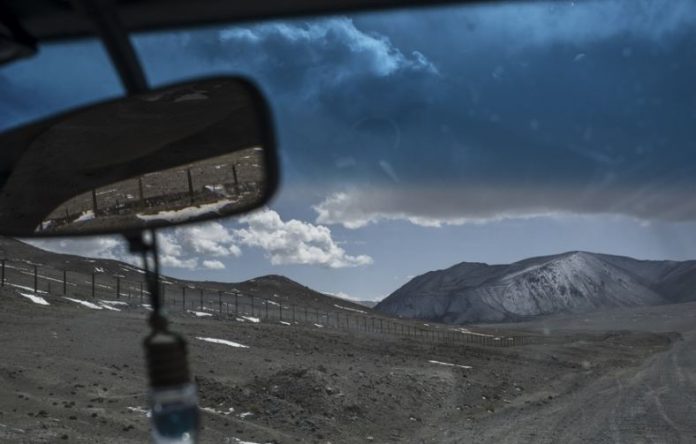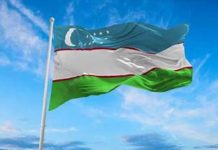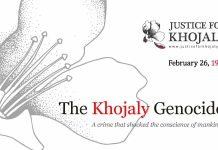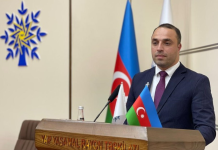Before moving from Russia to Kazakhstan in 2008 to take up a job as the Central Asia correspondent for The Associated Press, I was given a boozy send-off by some veterans of that same beat.
The venue was a powerfully Orientalist chain restaurant called Shesh Besh. Their stock gimmick was to give diners a pair of dice with any jug of wine ordered. You got three throws, and if you got a six and a five (as in the name of the restaurant), the gift of another jug of wine would follow.
My memories of the evening are thankfully hazy. But I recall the mood.
My colleagues seemed happy for me, even a bit jealous. Central Asia was such an exciting story. Away from the overcrowded press pack of Moscow, journalists could uncover fascinating stories at leisure without having constantly to look over their shoulders.
Those journalists had done their stints in the immediate post-9/11 period. Interest in the region was high at that time. Also, cities like Tashkent and Almaty were convenient and safe locations from which to keep an eye on Afghanistan. I have been told that the AP bureau in Tashkent at one time had a staff of 15 people, mostly there to deal with Kabul business.
The press pack that I found in Almaty was a modest affair, but still reasonably healthy. The BBC had a bureau, which was shared by the full-time correspondent and reporters for local language services. The major wires were represented: Reuters with their big team and an expensive downtown office I would ponder enviously while hunched over my laptop in an uncooled kitchen, Agence-France Presse, Bloomberg, and even Dow Jones. A crew of freelancers kicked about too.
British newspaper The Daily Telegraph unaccountably had full-time correspondents for a while. I shared a house with two of them. An Almaty-based stringer for The New York Times managed to get the odd piece run in the paper.
My predecessor in this job, David Trilling, was over in Bishkek, which Almaty expats would invariably regard with a hint of wholly misplaced snootiness. The Kyrgyz capital was a little ramshackle, sure, and made unnerving by the never-absent risk of falling down an uncovered manhole on an unlit street late at night.
But it was far more fun. As if any bar in Almaty in those days would have had the temerity to stage The Vagina Monologues, as the notorious Metro Pub did.
And Kyrgyzstan had the story. One of the only stories, as it turned out, that editors in Europe or the United States could be sold on with any ease: the U.S. air base (or “transit center,” as pedantic Department of Defense spokespeople insisted we call it).
This has been a perennial problem with doing journalism on Central Asia. The story is always refracted through the lens of a nearby drama. The presence of American bases in Kyrgyzstan and Uzbekistan, and their eventual expulsion at the hands of capricious Moscow-aligned dictators, was important because those facilities served operations in Afghanistan.
We still have this today. Central Asia is “Russia’s backyard,” we sometimes read. That phrase sends people from the region into perfectly understandable paroxysms of rage. Allusions to Central Asia being sandwiched between Russia and China – heaven knows how many times I must have deployed a variation on that one in more innocent days – elicit weary sighs.
When the American forces left, the appeal faded. It would be glib to assign the sagging interest in Central Asia to that one factor alone. Western media’s foreign coverage across the board has fallen off a cliff in recent years amid shrinking budgets. But it didn’t help.
The BBC bureau is gone. The AP never replaced me after I moved away from Kazakhstan in 2013. Reuters has a reduced presence. Others disappeared entirely.
For curious outsiders unable to comfortably read the languages of the region, or at least Russian, things have become grim.
It has not all been doom and gloom.
To be self-ingratiating for a moment, I am immensely proud of how much light our lean operation at Eurasianet, with its team of journalists on the ground patiently tolerating my endless stupid questions, has managed to shed. To name just a few of the more dramatic stories that we covered in depth at first-hand: Kyrgyz-Tajik border conflicts (from both sides of the border, no mean feat), unrest in Uzbekistan, interethnic violence in Kazakhstan, the Bloody January events in Almaty, the 2020 revolution in Kyrgyzstan. And we have had so many stories, often with beautiful photographic illustration, dwelling on the customs and ways of life of the region. It has been a privilege to be involved in any of this.
Radio Free Europe/Radio Liberty has a dedicated Central Asia correspondent in Almaty. The Economist is blessed with having the doyenne of the increasingly inexistent press pack: Joanna Lillis.
Media outlets in the region are also producing more content in English. A great deal of it is patchy, to put it tactfully, but there are notable standard-bearers, such as Vlast.kz.
For the newsletter-reading crowd, more of those are cropping up. And for those prepared to pay for news, services like Interfax and The Central Asia and South Caucasus Bulletin provide a good way to keep abreast of events.
But to come full circle, things have, alas, become tight at Eurasianet. This article is my last bit of writing as the site’s Central Asia editor.
I freely acknowledge there is something a little solipsistic in a Westerner reflecting dolefully on the state of foreign coverage of Central Asia.
But there is a broader consideration here. Lack of decent journalism will lead to poor diplomatic and development policymaking. This juncture in history hardly seems the time for that. International investors likewise rely on solid reporting to make their decisions.
And we owe it to journalists in the region to amplify and spotlight work that many of them find increasingly hard to do in their own countries.
Press freedoms in Central Asia have either plummeted or stagnated. Tajikistan is a horror-show only slightly better than Turkmenistan these days. The shoots of spring promised when Shavkat Mirziyoyev became president in Uzbekistan in 2016 have failed to blossom. Kyrgyzstan is rapidly going full-tilt authoritarian. Kazakhstan’s dalliances with liberalizing never seem to come to anything, and journalists still practice their profession at their own risk.
Undemocratic governments cannot seem to grasp that killing the free media only feeds rumor-mongering, especially in the era of social networks, and deepens ignorance; a perfect recipe for the very political instability they claim to abhor.
If the outside world looks away, the darkness will be even more complete.

















